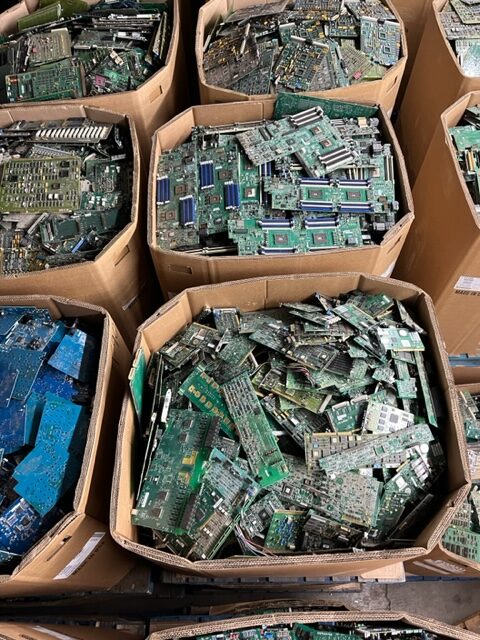In the rapidly advancing digital age, electronic waste, or e-waste, has become a significant environmental concern. As our reliance on technology continues to escalate, the proper management of e-waste has emerged as a crucial global issue. This article explores the escalating importance of e-waste management in 2023 and highlights the need for sustainable solutions to mitigate the detrimental effects on our planet.
The Rising Tide of Electronic Waste
In the year 2023, the world finds itself submerged in a deluge of electronic waste. With the relentless pace of technological advancements and the widespread adoption of devices, the volume of discarded electronics has reached unprecedented levels. The proliferation of smartphones, laptops, tablets, and other electronic gadgets has contributed to a mounting e-waste crisis. This surge in e-waste poses significant risks to the environment, human health, and natural resources.
Environmental Implications of Improper E-Waste Disposal

Improper disposal of e-waste has far-reaching environmental consequences. Toxic substances such as lead, mercury, cadmium, and flame retardants found in electronic devices contaminate soil and water, endangering ecosystems and wildlife. When e-waste is incinerated or dumped in landfills, it releases hazardous chemicals and greenhouse gases, exacerbating climate change. The accumulation of non-biodegradable materials in landfills further strains natural resources and contributes to soil and water pollution. To protect the environment and ensure a sustainable future, effective e-waste management practices are imperative.
Human Health Risks and Social Impacts
The mishandling of e-waste poses severe health risks to both individuals and communities. Exposure to toxic substances in e-waste can lead to respiratory problems, neurological disorders, and organ damage. Vulnerable populations, such as informal e-waste recyclers, are particularly susceptible to these health hazards. Additionally, the improper disposal of e-waste in developing countries often results in exploitative practices, hazardous working conditions, and the release of pollutants into local communities. Responsible e-waste management not only protects human health but also promotes social justice and equitable practices.
The Economic Opportunities of E-Waste Recycling
Amidst the environmental and health challenges posed by e-waste, there lies a significant economic opportunity. E-waste contains valuable materials like gold, silver, copper, and rare earth metals that can be recovered through recycling. Implementing efficient recycling processes not only reduces the need for resource extraction but also stimulates the development of a circular economy. This, in turn, fosters job creation, promotes technological innovation, and supports sustainable economic growth. Embracing e-waste recycling and adopting a circular approach to electronic consumption offers economic benefits while safeguarding the environment.
The Way Forward: Sustainable E-Waste Management

Addressing the e-waste crisis requires a multi-faceted approach that involves various stakeholders. Governments should enact and enforce comprehensive e-waste regulations, promoting responsible production, consumption, and disposal practices. Manufacturers must adopt design principles that prioritize product durability, reparability, and recyclability. Consumers should actively participate in e-waste recycling programs and make conscious choices when purchasing electronics. Additionally, investment in research and development is essential to finding innovative and sustainable solutions for e-waste management. By recognizing the importance of e-waste management and taking collective action, we can minimize the environmental impact, protect human health, and build a more sustainable future.
Conclusion
In 2023, e-waste management has become an urgent global concern, demanding immediate attention. As the mountains of discarded electronics continue to grow, the environmental, health, social, and economic consequences intensify. By embracing sustainable e-waste management practices, we can mitigate the detrimental effects, unlock economic opportunities, and foster a more sustainable and responsible digital future.


